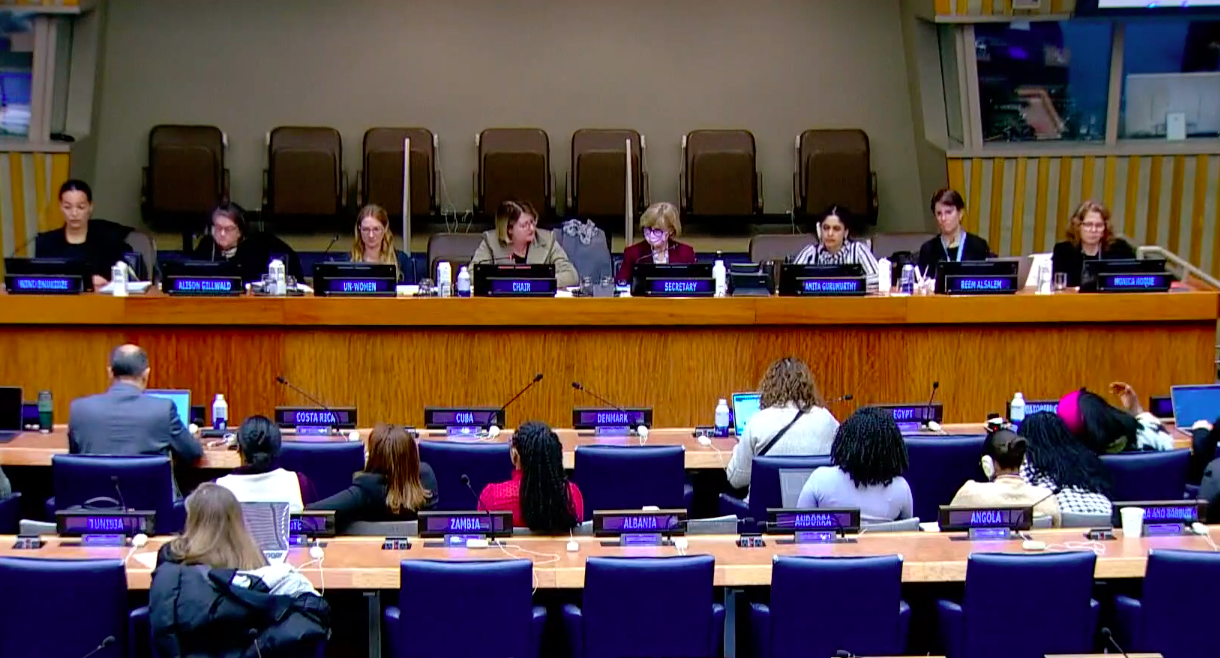On 14 March 2023, IBON International delivered an intervention at the Interactive expert panel on the priority theme, “Innovation and technological change, and education in the digital age for achieving gender equality and the empowerment of all women and girls” at the 67th Session of the Commission on the Status of Women. The following is the full text version of the intervention.
I am Agatha Canape from IBON International, a Southern-based capacity development institution. We support women’s organisations, social movements, and civil society in their assertions for rights, and advocacy in global policy spaces, towards gender and social justice.
We are concerned regarding the corporate monopoly over digital innovation and technology. The information technology industry is dominated by five transnational corporations known as the Big Tech; while the revenues generated by digital labour platforms have been concentrated in only two countries. Big Tech’s power is built on international norms that deregulate and liberalise economies, at the expense of room for Southern countries to ensure that technology serves their priorities.
The domination of big technology corporations facilitates a profit-driven digitalisation based on extractivism and exploitation – of women’s data, of peasant and Indigenous women’s land and natural resources to cater to the tech industry’s needs, of women’s labour. Far from advancing women’s rights, this kind of digitalisation perpetuates systemic barriers to the realisation of women’s rights and gender justice, especially in the global South.
Digital platforms exploit women workers on race-to-the-bottom wages and precarious labour conditions. Indigenous communities are displaced to extract raw materials needed by the technology industry. Unequal trade rules that facilitate unregulated cross-border data flows to big technology corporations based in developed countries rob the global South of much-needed revenues to bolster national economies and public services amid multiple crises.
States’ contracting of big technology corporations to digitise governance has further privatised social services and eroded the role of the state as the principal duty-bearer, and increased the influence of corporations. States also work closely with corporations to design technologies used in the surveillance of women human rights defenders and their organisations.
Corporate monopoly over data threatens people’s right to privacy, and enables Big Tech to shape public discourse. The expansion of Big Tech’s influence over global policy spaces is also worrisome.
Digitalisation is interlinked with, and should be tackled alongside fundamental, development issues concerning women in the global South such as the right to land, living wages, access to social services, participation in policy- and decision-making, and the right to development.
IBON International asserts that digital transformation should uphold the economic, cultural, social, and civil-political rights of women and other marginalised groups. Big technology corporations should be regulated and held to account to international human rights laws and standards. The spirit of innovation should be applied in coming up with policy frameworks that will break corporate power over digital technologies, and ensure that digital innovation and technology serve the public interest. #



